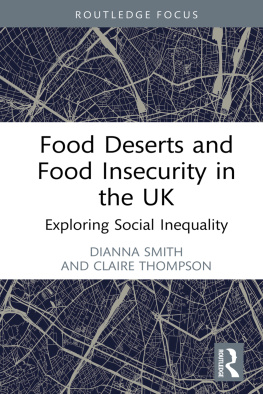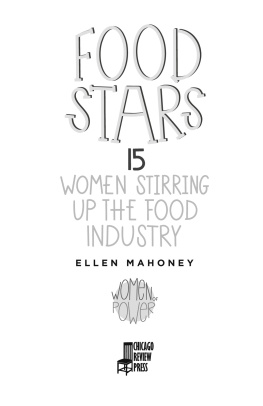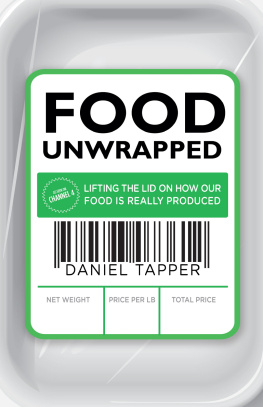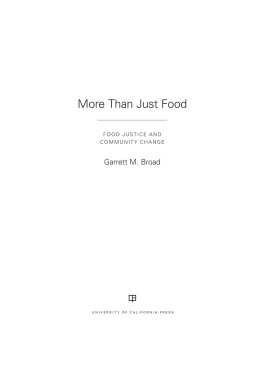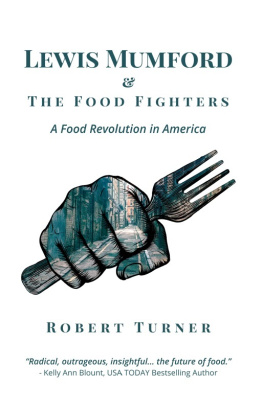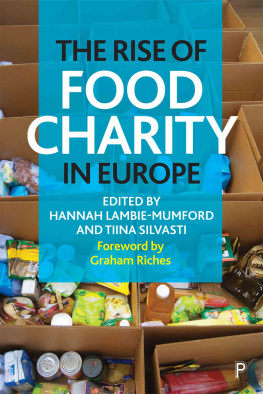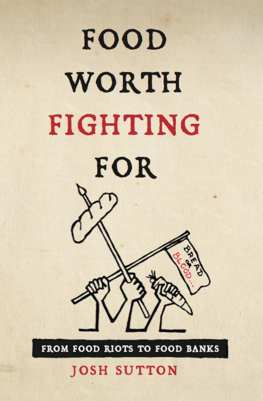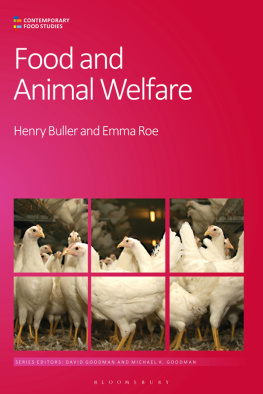HUNGRY BRITAIN
The rise of food charity
Hannah Lambie-Mumford
First published in Great Britain in 2017 by
Policy Press University of Bristol 1-9 Old Park Hill Bristol BS2 8BB UK Tel +44 (0)117 954 5940 e-mail
North American office: Policy Press c/o The University of Chicago Press 1427 East 60th Street Chicago, IL 60637, USA t: +1 773 702 7700 f: +1 773-702-9756 e:
Policy Press 2017
British Library Cataloguing in Publication Data
A catalogue record for this book is available from the British Library
Library of Congress Cataloging-in-Publication Data
A catalog record for this book has been requested
ISBN 978-1-4473-2829-2 paperback
ISBN 978-1-4473-2828-5 hardcover
ISBN 978-1-4473-2832-2 ePub
ISBN 978-1-4473-2833-9 Mobi
ISBN 978-1-4473-2831-5 ePdf
The right of Hannah Lambie-Mumford to be identified as author of this work has been asserted by her in accordance with the Copyright, Designs and Patents Act 1988.
All rights reserved: no part of this publication may be reproduced, stored in a retrieval system, or transmitted in any form or by any means, electronic, mechanical, photocopying, recording, or otherwise without the prior permission of Policy Press.
The statements and opinions contained within this publication are solely those of the author and not of the University of Bristol or Policy Press. The University of Bristol and Policy Press disclaim responsibility for any injury to persons or property resulting from any material published in this publication.
Policy Press works to counter discrimination on grounds of gender, race, disability, age and sexuality.
Cover design by Hayes Design
Front cover image: Getty
Readers Guide
This book has been optimised for PDA.
Tables may have been presented to accommodate this devices limitations.
Image presentation is limited by this devices limitations.
For Andrew and Elodie
Contents
List of figures
Trussell Trust food parcel distribution
Theoretical framework
Food-bank centre in a religious building with doorbell access
Food bank open signs make access conspicuous
Food-bank centre in a chapel laden with religious imagery
List of abbreviations
| CFM | Community Food Members |
| DCLG | Department for Communities and Local Government |
| DoH | Department of Health |
| DWP | Department for Work and Pensions |
| ESA | Employment Support Allowance |
| ESRC | Economic and Social Research Council |
| FAO | Food and Agriculture Organisation |
| ICESCR | International Covenant on Economic, Social and Cultural Rights |
| JSA | Jobseekers Allowance |
| MIS | Minimum Income Standards |
| NGO | Non-governmental organisation |
| RDO | Regional Development Officer |
| UN | United Nations |
| VCO | Voluntary and community organisations |
Acknowledgements
First of all, I would like to thank the Trussell Trust and FareShare for their support of this research, for opening up their organisations for study and for their commitment to helping the project progress along its way. My heartfelt thanks also go to all the interviewees who took part in the research, for giving up their time and sharing their experiences and insights with me. I would also like to thank other volunteers at the projects I visited, who took time out of their busy days to talk to me informally and help me get a better feel for their work.
Thank you to Matt Watson, Dimitris Ballas and Peter Jackson from the University of Sheffield for all of their guidance and advice. Thanks also to Liz Dowler from the University of Warwick for her invaluable advice and mentorship in recent years, and to Rachel Loopstra from Kings College London for all her help and support. Thanks to Graham Riches from the University of British Columbia for his comments on earlier versions of this work and support of my research agenda. Thanks to all my colleagues at Sheffield Political Economy Research Institute (Speri) for being a great team and for all of their encouragement through this process.
I have had the pleasure of working with and learning from many other great organisations and individuals who are doing important work in this field. I would like to thank Patrick Butler from The Guardian, Niall Cooper from Church Action on Poverty, Dan Crossley from the Food Ethics Council and Alison Garnham and Imran Hussain from the Child Poverty Action Group.
Thanks to the Economic and Social Research Council for the funding that made this research possible (grant reference ES/J500215/1) and for providing further opportunities to extend the impact of this research via the 2014 Outstanding Early Career Impact award. Thanks to Laura Vickers, Emily Watt, Jess Mitchell and the rest of the team at Policy Press for all their help along the way.
Finally, I would like to thank my family and friends for all their love and support, especially my parents and my sister. I dont think I can ever thank my husband Andrew enough for reading numerous versions and providing sage advice the whole way. And thanks to Elodie, for making it all worth it.
Foreword
Is there a more vivid depiction of acute poverty than the terrifying food-bank scene in Ken Loachs award-winning drama I, Daniel Blake? One of the protagonists, a penniless and starving single mum, tears open a can of baked beans and in a frenzy of hunger stuffs the contents into her mouth with her fingers. This moment of acute desperation is where people end up, the film suggests, when you not only rip apart the social security safety net but also leave the vulnerable individuals who then fall through it precariously reliant on charity handouts to survive.
The food bank was a perfect location for Loachs film; it is emblematic of political and economic changes in the UK over the past decade. Most people had never heard of food banks in Britain in 2009; now there are thousands, all over the country. Food banks have been absorbed into mainstream political and cultural discourse as a kind of shorthand for poverty, the consequences of austerity and the punitive nature of neoliberal social security reform. There was widespread shock when the UKs biggest food-bank network, The Trussell Trust, began rapidly expanding at the beginning of this decade; ironic quips about food banks being a growth industry in a time of recession mingled with incredulity and embarrassment that so many people in one of the worlds wealthiest countries went hungry because they were too poor to feed themselves and their families.
Arguably, the initial shock at the rise of food banks in the UK (they have been around for much longer in Canada and the US) has subsided. It is entirely possible that, in media terms, we have reached a point of peak food bank. The appetite for news reports from the food charity frontline has diminished through repetition; how often, after all, can you keep telling the same awful story? Similarly, public outrage at the revelations of The Trussell Trusts annual audits (which, after early double-digit increases, show the volume of food given out each year to be roughly stabilising at enough to feed more than 1.1 million people) has faded slightly. As The Trussell Trust pointed out in 2016, there is a danger that reliance on food charity has become the new normal. At the margins, the state is now seemingly content to be structurally dependent on food banks much to the chagrin of many food-bank volunteers, who feel they have been co-opted as informal partners in the social security system, their task to help mitigate the effects of welfare cuts, chaos and delays in the administration of benefits, low wages, insecure jobs and high rents. Food banks are here to stay, I suspect; the question is how far we, as a society, will tolerate the growth of food charity as a substitute for more efficient ways of tackling poverty and food insecurity. Food banks also face a choice: are they prepared to resist the temptation to expand to meet growing demand, as the UK enters what looks like a period of semi-permanent austerity.


